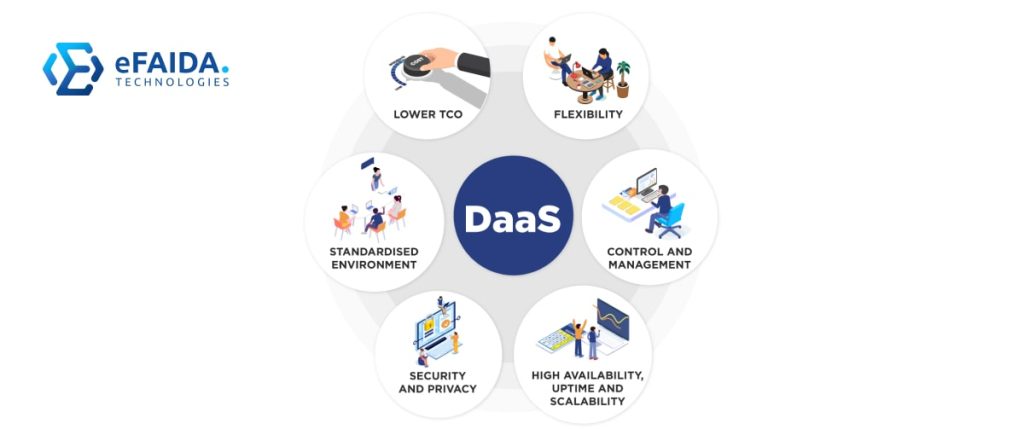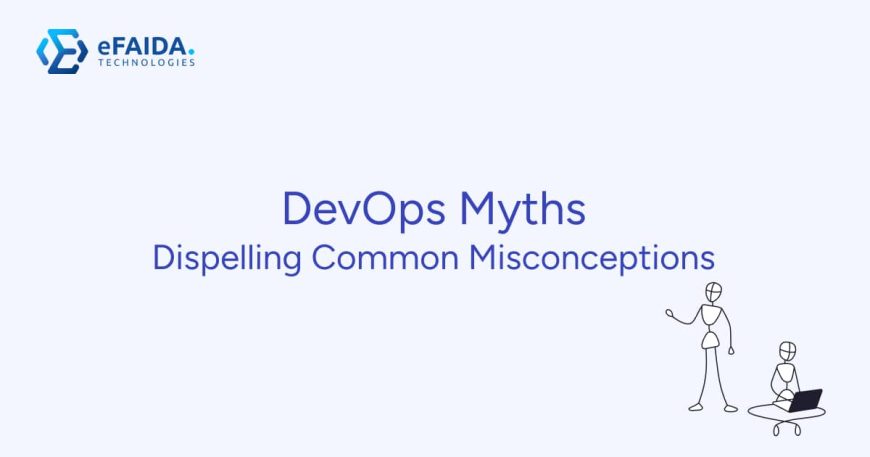Introduction
The digital business environment has grown to become highly dynamic and competitive hence the need for business organizations to adopt efficient strategies and quick responses. To achieve these goals, the DevOps culture and technology, which work for the interaction of development teams (Dev) and operational teams (Ops), have become an essential approach. However, it becomes very challenging to work out a full-fledged DevOps framework that will suffice all the requirements; this has given rise to DevOps as a Service (DaaS).
This blog post explains the notion of DaaS and tries to reveal the misconceptions related to it and the actual potential of this solution. In the following section, we will discuss the advantages and disadvantages of the help of DaaS and highlight some most asked questions that you may have in your mind regarding its adoption by your organization.
Understanding DevOps as a Service (DaaS)
DaaS can be described as a managed service model that provides organizations with the necessary tools, infrastructure, and DevOps know-how that is required in order to achieve optimal DevOps execution. In effect, it enables companies to farm out the efficient maintenance as well as execution of the DevOps framework and thus allocate maximal resources to development.
Here’s a breakdown of what DaaS typically offers:
- DevOps Tools: A set of smooth-integrated DevOps tools involving, configuration management, infrastructure, and environment management, CI/CD pipeline, monitoring tools, and security solutions.
- Infrastructure Management: Subsequently, DaaS providers manage the fundamentals of their infrastructure, servers, and storage, leaving your team to avoid infrastructure burdens.
- DevOps Expertise: With the help of DaaS, you can find experienced DevOps specialists who will be able to help your team configure the process and solve potential problems, if any.
Myth vs. Reality: Unveiling the Truth About DaaS
While DaaS offers a compelling value proposition, there are several myths surrounding it that need to be addressed:
- Myth 1: DaaS is the silver bullet of DevOps: DevOps is about culture change as much as it is about technology. DaaS can give management the tools and framework to make the change, but it takes a Senior buy-off and a commitment to change the long-standing adversarial relationship between Dev and Ops.
- Myth 2: DaaS Removes the Requirement for the Development of In-house DevOps Skills: While using DaaS, you can work with DevOps specialists, but this does not mean that it is possible to completely abandon the development of in-house specialists in this field. Your team will still need to be acquainted with DevOps best practices and still, request the provided tools.
- Myth 3: DaaS Ties You to a Specific Vendor’s Platform: While many DaaS suppliers provide open-source alternatives and interact with current frameworks. Keep an eye out for the service providers who can give you room for maneuver and do not tie you in.
- Myth 4: This is completely wrong since DaaS can be useful for any organization, regardless of its size. DaaS will be valuable to startups and small businesses since they will be able to access the sophisticated tools and skills needed without requiring to invest a huge capital.
- Myth 5: DaaS is costly but if compared with the expense of creating an infrastructure for a DevOps system, then DaaS is arguably cheaper. Think about the price of the hardware, the cost of the software to run the structure, the personnel needed to run the structure, and the costs of maintaining the structure.

The Reality of DaaS: Benefits and Considerations
By dispelling the myths, we can see the real benefits DaaS offers:
- Faster Time to Market: DaaS facilitates the development and creation of features/ applications that you can release to the market without taking so much time.
- Improved Software Quality: DaaS tools and practices help in maintaining integration and testing at regular intervals and releases that as a result define high-quality outputs.
- Increased Efficiency: This is because DaaS relieves your staff of mundane activities such as scheduling and maintenance, thus allowing them to concentrate on more creative endeavors.
- Enhanced Scalability: By outsourcing your DevOps environment via DaaS, you can achieve significant flexibility in terms of growth and expansion.
- Reduced Costs: It is also important to note the possibility of DaaS being cheaper than developing and maintaining an in-house DevOps setting.
However, there are also some considerations to keep in mind before adopting DaaS:
- Security Concerns: Ensure the DaaS provider meets its cybersecurity protocols and is aligned with your organization’s security standards.
- Integration Challenges: Determine whether the DaaS solution looks like it fits into your current environment without causing significant architecture disruption.
- Vendor Lock-in: Open standards and avoiding vendor lock-in are major critical success factors here, to assist you in deciding on what DaaS provider to go with.
- Change Management: DaaS deployment demands change control solutions to make certain that the team enriches and takes up the cultural change.
Conclusion
Services like DevOps as a Service create immense potential as they can help many organizations reduce the development and delivery time of software applications. While the aim of this article is to defeat some of the myths around DaaS, it is important to answer the question: is this service necessary for your organization?
Finally, to reaffirm, it is crucial to note that, for DaaS to be a success it has to go through a proper planning process, including the vendor selection process, along with a willingness to transform your teams’ culture to adapt to DaaS. Apparently, DaaS provides tools, expertise, and agility that can be a force multiplier for your business that will enable you for faster time to market, improved software quality, and better competition in today’s business world.
Frequently Asked Questions on DevOps as a Service
Q1. Who is DaaS a good fit for?
Thus, DaaS has the potential to benefit any type of business, especially one that cannot develop software at a very fast pace, one that is experiencing a deficiency of cross-functionality, or one that needs an update in its technologies.
Q2. How much does DaaS cost?
Regarding the costs, DaaS is relatively more expensive as it varies with vendors while concerning the unique features, the price also varies depending on the particular functionalities that a business may require. This is because it is often offered in a prepaid manner, making it useful for providers of different sizes.
Q3. Can I integrate DaaS with my existing tools?
The choice for the DaaS provider should also include offering such things as open-source tools along with integration into other development and collaboration platforms. This ensures that functionality is optimized, as well as integrates with current work schedules.
Q4. How do I ensure security with DaaS?
Security should also be standard with DaaS providers, and you are recommended to go for a vendor with no record of violation, and better industry compliance certifications. Evaluate how effectively they manage accesses, the encrypted data, and their devices in managing disasters including loss of data.
Q5. What are the key metrics to measure the success of DaaS implementation?
Take time to change, number of changes per time, average time to failure, and application availability as key indicators to keep track of the effects of DaaS on the organization.




